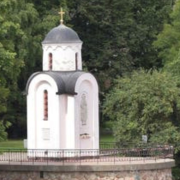From the Eastern Orthodox theologian David Bentley Hart’s essay ‘The Myth of Schism‘:
In truth, the most unpleasant aspect of the current state of the division between East and West is the sheer inventiveness with which those ardently committed to that division have gone about fabricating ever profounder and more radical reasons for it. Our distant Christian forebears were content to despise one another over the most minimal of matters—leavened or unleavened Eucharistic bread, for instance, or veneration of unconsecrated elements—without ever bothering to suppose that these differences were symptomatic of anything deeper than themselves. Today, however, a grand mythology has evolved regarding the theological dispositions of the Eastern and Western Christendom, to the effect that the theologies of the Eastern and Western Catholic traditions have obeyed contrary logics and have in consequence arrived at conclusions inimical each to the other—that is to say, the very essence of what we believe is no longer compatible. I do not believe that, before the middle of the 20th century, claims were ever made regarding the nature of the division as radical as those one finds not only in the works of inane agitators like the altogether absurd and execrable John Romanides, but also in the works of theologians of genuine stature, such as Dumitru Staniloae, Vladimir Lossky, or John Zizioulas in the East or Erich Przywara or Hans Urs von Balthasar in the West; and until those claims are defeated—as well they should be, as they are without exception entirely fanciful—we cannot reasonably hope for anything but impasse.
Although I find myself broadly in agreement with Hart, I don’t know if he exaggerates matters in reaction to people like Romanides. It is true that we are in a greater position than our ancestors in being able to identify differing dispositions in people from different cultures, including what we may broadly call “Westerners and Easterners” (see my post ‘Neuroplasticity and East-West Brain Differences‘). Moreover, as dialogue between different language groups becomes increasingly possible, it is entirely conceivable (and legitimate) that scholars will become better equipped at perceiving deeper philosophical reasons for what had previously been understood as merely different practices. I’m particularly aware of this right now since I’m taking a course on world customs and learning just how different the various theoretical frameworks are that different cultures unconsciously use as a grid for understanding the world and our relationships with each other. The problem arises when theology gets involved and the underlying differences between people-groups are hardened into grand ideological narratives that obscure how we interpret the historical record, which scholars besides Hart believe is in danger of happening in the context of Orthodox-Catholic relations.
Further Reading
- Light from the Christian West: Aquinas and Eastern Orthodoxy
- How “Nous” Became a Trojan Horse For Secularism, and Why it is So Difficult to Translate
- Eastern Orthodoxy and the Lure of Epistemological Romanticism
- Dr. Nathan Jacobs on East-West Theological Differences
- Eastern Orthodoxy and the Lure of Epistemological Romanticism



